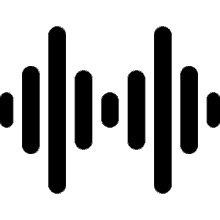Insight into Seasonality in FMCG Business: A Global Perspective

Seasonality in the Fast-Moving Consumer Goods (FMCG) business plays a critical role in shaping marketing strategies, product development, and sales optimization worldwide. Seasonality refers to recurring periods in which demand for specific products fluctuates, usually influenced by changes in weather, holidays, cultural events, and economic cycles. To effectively tap into the potential of seasonality, FMCG businesses must understand the global patterns that influence consumption behaviour.
Let’s take a deep dive into how seasonality impacts FMCG businesses on a global scale and how brands can strategize accordingly to maximize growth and engagement.
Global Dimensions of Seasonality in FMCG
Seasonality in FMCG is a universal phenomenon, but its impact varies across regions due to cultural, climatic, and economic differences. To better understand seasonality from a global perspective, let’s examine the key drivers:
1. Geographic and Climatic Seasons
Seasonality in FMCG is first and foremost driven by geography and climate. The four major seasons—spring, summer, autumn, and winter—affect consumer purchasing habits differently depending on the region’s weather conditions.
Summer: Hot weather typically increases demand for cooling products like beverages (water, soft drinks), ice creams, and air-conditioning units. In tropical and hot climates such as Southeast Asia, demand for cooling products peaks during the summer months. On the other hand, in cold climates like Northern Europe or Canada, summer can drive demand for outdoor recreational products like picnic supplies or sports equipment.
Winter: In colder regions, the demand for FMCG products shifts towards items that provide warmth, comfort, and nourishment. Products like hot beverages (coffee, tea), canned soups, winter clothing, and heating devices see a significant boost in sales during the winter season. In warmer regions, winter may still increase demand for certain seasonal products, such as heavier lotions or moisturizers.
Monsoon/Autumn: In countries with monsoon climates, such as India or parts of Southeast Asia, the wet season can drive demand for products like umbrellas, waterproof clothing, and health supplements for immunity. These products cater to the seasonal changes in weather patterns, such as rain and humidity.
2. Festivals and Cultural Events
Festivals and cultural celebrations are another major driver of seasonality in FMCG. Festivals often coincide with periods of heightened consumer spending, making it a key period for product launches and promotions. Christmas and New Year: Globally, the holiday season around Christmas and New Year is a time of increased spending on gifts, food, beverages, and cosmetics. Brands release special edition packaging or seasonal flavours that cater to the celebratory mood. For example, brands in the US and Europe may offer limited-time packaging or gift sets for cosmetics, chocolate, and luxury products.
Diwali (India), Lunar New Year (China), and Eid (Middle Eastern and Southeast Asian countries): These culturally significant holidays not only impact India but also other parts of Asia, influencing consumption patterns. FMCG companies typically release special products, promotional offers, or festive packaging during such holidays to capitalize on the spending behaviour of consumers. The demand for confectionery, snacks, and beverages often increases during these festive periods.
3. Sporting Events and Global Competitions
Global sporting events like the Olympics, FIFA World Cup, Cricket World Cup, and Super Bowl are key moments of seasonality for FMCG businesses. Such events draw in massive audiences, making it an ideal time for FMCG companies to launch marketing campaigns, create limited-edition products, and offer promotions to attract consumer attention.
For example, during major global football tournaments, brands like Coca-Cola, Pepsi, and other beverage companies run ad campaigns and sponsor events. The viewership peaks during these tournaments, driving higher sales for certain categories like beverages, snacks, and other consumables.
The IPL (Indian Premier League) in India, Tour de France in Europe, and NBA Finals in the US are examples of region-specific sporting events that influence the FMCG industry by sparking consumer interest and engagement.
4. Holiday Seasons and Long Breaks
Global holiday seasons, including summer breaks, school vacations, and long weekends, often lead to changes in consumer habits. Families tend to travel, indulge in leisure activities, and spend more on FMCG products, such as snacks, beverages, toiletries, and packaged food.
Summer Vacations: In the US, UK, and European countries, summer vacations increase the demand for snack foods, travel-sized toiletries, and outdoor products. Similarly, in Australia and New Zealand, the summer season creates a surge in products like ice creams, sunscreen, and cold drinks.
School Holidays: During school holidays, particularly Christmas and summer breaks, demand for food items (snacks, chocolates), health products (vitamins, supplements), and hygiene products (toiletries) increases.
Leveraging Seasonality for FMCG Success
Understanding the global nature of seasonality in the FMCG industry allows businesses to be more proactive in aligning their marketing and sales strategies. Here’s how FMCG businesses can take advantage of seasonal trends:
1. Tailored Product Launches
Global FMCG companies can align their product launches with the seasonality patterns of different regions. For example, a beverage industry may launch new summer flavours in the Middle East, Southeast Asia, or Latin America during peak summer months, while launching winter-ready products like hot cocoa in colder regions.
2. Seasonal Packaging and Promotions
Seasonal packaging plays a critical role in consumer decision-making. FMCG brands often offer limited-edition packaging or festive-themed products during major holidays to drive consumer interest. For instance, during the Christmas season in the Western world, brands may create products with holiday-specific packaging to appeal to consumers seeking gift options.
3. Targeted Advertising and Campaigns
Using seasonality to inform advertising campaigns can maximize brand engagement. FMCG brands must tailor their marketing messages to the season at hand. For instance, during the IPL season in India, brands in the beverage and snack categories might target cricket fans with themed promotions and discounts.
4. Sales Forecasting and Demand Planning
Effective sales forecasting based on seasonality is essential to prevent stockouts or overstocking. Companies should plan for peak demand periods, adjusting their supply chain operations and production schedules to ensure they can meet the increased demand for specific products during high-season months or festivals.
Conclusion
Seasonality plays an essential role in shaping the FMCG business on a global scale. From geographic seasons and cultural festivals to sporting events and holidays, businesses that understand the underlying trends can leverage seasonality to boost sales, increase consumer engagement, and optimize product offerings.
By aligning product development, packaging, promotions, and advertising strategies with seasonal patterns, FMCG companies can effectively cater to global consumer needs. Seasonality is not just about responding to demand; it’s about anticipating it and using that foresight to stay ahead of the competition.
As global markets continue to evolve, staying attuned to seasonality trends can offer a significant competitive advantage for FMCG businesses worldwide. Whether you’re in the food, beverage, personal care, or household product industries, understanding and planning for seasonality is key to sustained growth and success.









